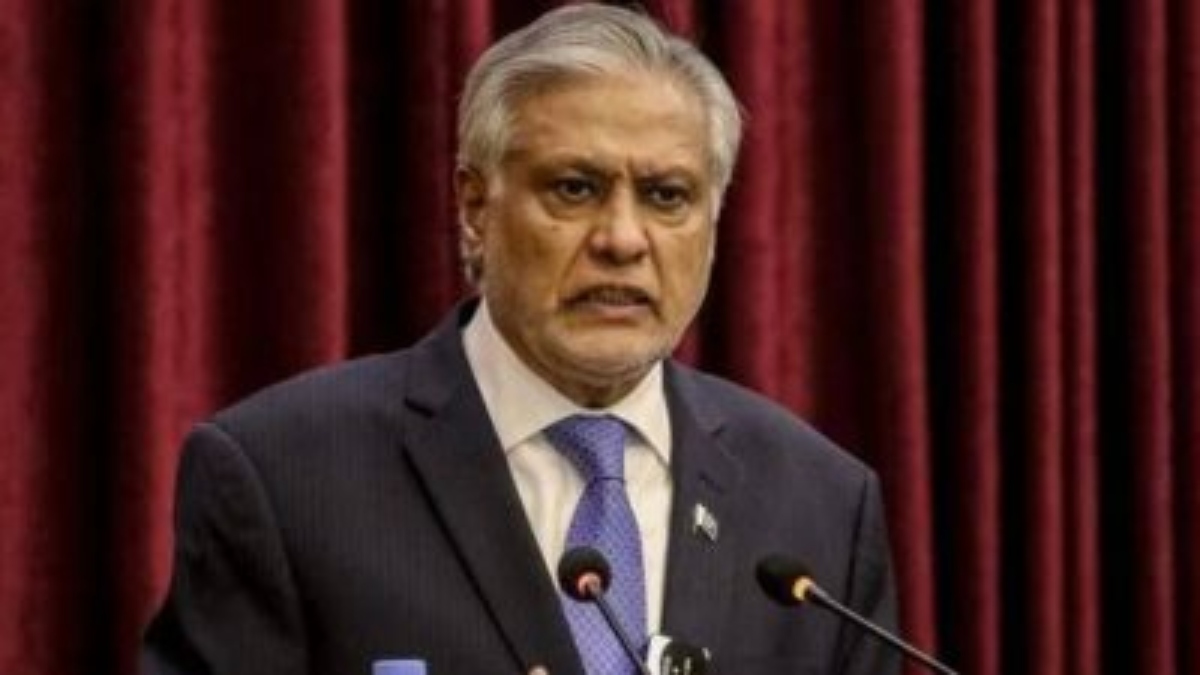Pakistan’s Deputy Prime Minister Ishaq Dar has confirmed that Islamabad reached out not only to US but also Saudi Arabia in a bid to de-escalate tensions after India’s airstrikes under Operation Sindoor.
Speaking to Geo News, Dar said Saudi Prince Faisal bin Salman personally inquired whether he could convey Pakistan’s willingness to halt hostilities to Indian Foreign Minister S Jaishankar, revealing that Riyadh was involved in behind-the-scenes diplomacy.
Dar also confirmed that India’s precision strikes targeted key Pakistani military installations, including the Nur Khan and Shorkot airbases just as Pakistan was preparing to launch retaliatory strikes, a disclosure that sharply contradicts Pakistan Prime Minister Shehbaz Sharif’s earlier claims of a triumphant operation.
“Saudi Prince Faisal bin Salman called and asked if he could tell Jaishankar that Pakistan is ready to stop,” Geo News quoted Dar as saying.
Dar’s candid acknowledgment contradicts earlier official statements by the Pakistani leadership, which had emphasised that Pakistan delivered a decisive blow to India during Operation Sindoor.
Impact Shorts
More ShortsIn reality, Dar’s comments, along with PM Sharif’s own recent statements, suggest that Pakistan was caught off guard by India’s rapid and targeted military action.
Just days after the strikes, Pakistan’s military — under the command of Army Chief General Asim Munir — was reportedly reeling from the impact of India’s surprise offensive, which disrupted planned counterattacks.
General Munir, who has since been promoted to Field Marshal, described India’s actions as an attempt to impose a “new normal” — referring to its cross-border precision strikes on terror-linked facilities across Pakistan and Pakistan-occupied Kashmir.
“India attempted to establish a ‘new normal’ — a dangerous precedent of crossing international borders at will,” Dawn quoted General Munir as saying at a gathering of overseas Pakistanis in Washington.
Adding to the shift in narrative, PM Sharif recently admitted that India had launched BrahMos missile strikes targeting multiple locations, including Rawalpindi airport.
“India again launched missile attacks, BrahMos, and hit Pakistan’s various provinces, including airport in Rawalpindi and other places,” said Sharif.
He added that Pakistan’s planned counterstrike for 4:30 am on May 10 was preempted by India’s offensive on the night of May 9-10, catching the military off guard.
Together, these acknowledgments present a sharp shift from Islamabad’s earlier boasts, revealing instead a defensive scramble against India’s “new normal.”
India carried out precision strikes under ‘Operation Sindoor’ on terror infrastructure in Pakistan and Pakistan-occupied Kashmir early on May 7 in response to the April 22 Pahalgam terror attack that killed 26 people.
Following the Indian action, Pakistan attempted to attack Indian military bases on May 8, 9 and 10. The Indian forces launched a fierce counter-attack on several Pakistani military installations.
India and Pakistan reached an understanding on May 10 to end the conflict after four days of intense cross-border drone and missile strikes.
With inputs from agencies
)